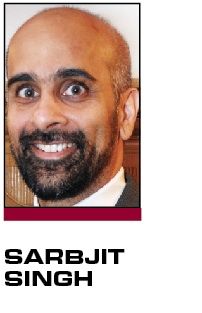Charles Barkley has changed his tune when it comes to being a role model. (Shilling for Weight Watchers will do that). It seems now that Charles’ point was always that he is a role model, he just wasn’t the only role model a young person should have. And that makes sense. Who looks up to only one person? What company benchmarks itself against only one other company? We need a variety of quality people and institutions with which to align ourselves. The challenge for many starting out is making contact with those worthy of such attention. They are out there. Rather, it is more about access.
You should take a moment to congratulate yourself because even if you haven’t thought about being a mentor, you probably have held that position as a family member, friend, boss, colleague and/or teammate on a regular basis. Or maybe you actually held the title of “mentor.” I had the honor of being a mentor for four years in the Fulfillment Fund in Los Angeles, an organization that identifies teens with a shortage of resources but not initiative. The fund pairs the student with someone who can provide the type of guidance essential to mine the challenges in our modern society. And it is not one-sided: The mentor gets as much value in enlightened perspective and fun times as the mentee.
Our industry and its members have a natural connection to being mentors. It is an industry very much built on personal and professional relationships. We regularly find ourselves in positions to serve as senior advisers to newer employees at leagues, teams, companies, organizations and nonprofits, via our respective alumni associations to current and former students, and through our participation in the increasing number of valuable professional organizations out there, e.g. Sports Lawyers Association, International Association of Venue Managers, and the National Sports Marketing Network.
Our professional networking groups are especially ripe for folks to interact as they are a wonderful mix of the experienced and the newly informed. The mentor relationship can be formal — with regularly scheduled points of interaction — or more informal, where giving 20 minutes of career advice one time can provide a lifetime of value. The key is to offer regular opportunities to interact. And while some might bemoan the growth of certain technologies and social media, used correctly, they can facilitate communication between the parties involved in mentoring.
Mentoring has always been important, so why bring it up now? Most of us recognize how fast life has become, how busy we all are, and that taking time out to consider the plight of others can get lost in the whirlwind of that activity. In a tight economy, it is natural to focus on “getting mine” instead of helping others “get theirs.” But this is precisely when an outsider’s perspective, advice and well-timed words of encouragement can make the difference in a person’s life.
And why sports? We are an industry built on teamwork, on seniors helping freshmen, of alumni rooting for the next generation of players. And we are part of a professional environment that demands greater knowledge and skills than in the past. Many times those essential tools are best delivered not by books but rather those who have gained them through experience.
So as we think about what we will do more of, better of — or in the case of vices, less of, in 2014 — please keep in mind something that you are naturally capable of doing. Find time to mentor. It will make you a better person and give us a better industry.
Sarbjit “Sab” Singh (singhs@farmingdale.edu) is an assistant professor at Farmingdale State College in New York.




